The Bike Shop on Wheels Traveling the Navajo Nation
Photographer Shaun Price captures images of a project to build a mobile bike repair center during COVID-19

Although the Navajo Nation covers a sprawling 27,000-square-mile area across Arizona, Utah, and New Mexico, there isn’t a single bike shop on the reservation. Until recently, cyclists would usually have to spend hours driving to the closest border town if they wanted to get their bikes repaired.
“It’s a common theme around here: someone gets a flat tire, and all of a sudden they’re out of a bike,” says photographer Shaun Price, who lives on the Navajo Nation. “It just sits on the side of the house.”
Last year, Price joined forces with a New Mexico nonprofit called Silver Stallion to try to change that. Over the summer, Silver Stallion founder Scott Nydam and a crew made up mostly of Diné mechanics began working to transform an old military truck into a bike shop on wheels. The result, which they’re calling the Mobile Ride Center, has been outfitted with all the tools and spare parts needed to travel around the Navajo Nation repairing bikes.
Silver Stallion received a grant from the New Mexico Outdoor Recreation Division’s Outdoor Equity Fund to finance the project, which took on extra significance as the pandemic worsened and it became more difficult for Navajo Nation residents to travel long distances for bike repair.
During the pandemic, “we’ve seen the power of getting outside when it comes to increasing mental and physical well-being,” says Axie Navas, director of the Outdoor Recreation Division. “If folks are stuck in their home and not able to travel for months at a time, we want to develop systems to come to them and bring world-class bike repair skills to their homes.” The Catena Foundation, a Colorado-based nonprofit, also pitched in to help with the project, while the Southwest Indian Foundation donated the truck.
In addition to working on the build, Price photographed the project throughout the summer and fall.
Photo: The Silver Stallion crew in front of the new Mobile Ride Center. Left to right: Lorenzo Manuelito, Frank Cook, Scott Nydam.

The Mobile Ride Center, before and after. Left: Frank Cook, one of the mechanics who helped with the build.
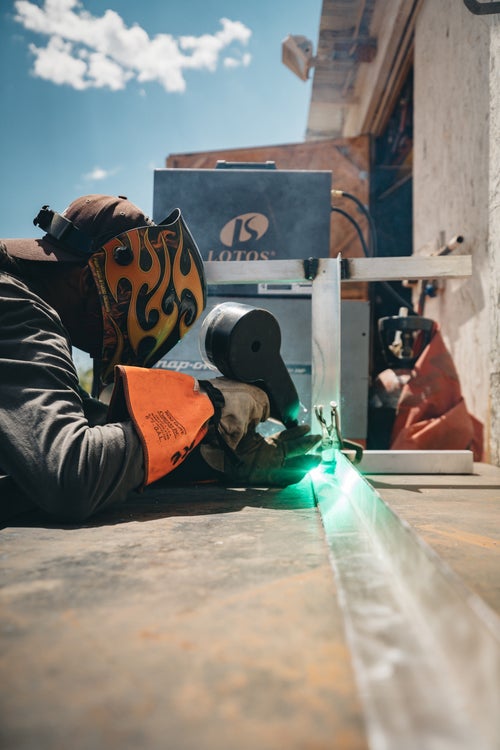
Shaun Price’s father, Lional Price, welds aluminum shelving for the truck’s parts library.
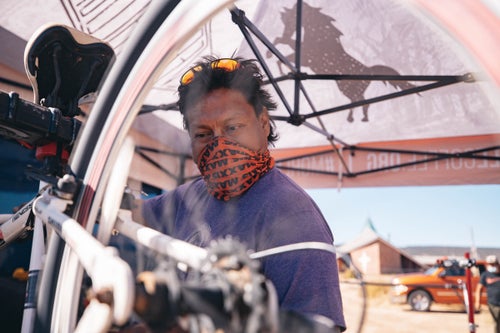
Myron Billy adjusts a derailleur. Billy, a World Cup mechanic who is Navajo, normally spends most of his year on the road. But when the pandemic hit, he suddenly found himself with more free time and played a key part in getting the Mobile Ride Center up and running. In addition to lending his expertise as a mechanic to the project, Billy solicited donations of spare parts from his professional rider friends. At a time when bike shops everywhere were seeing bike and parts shortages due to the pandemic, the Mobile Ride Center was able to fulfill an important need, Billy says.

As the Silver Stallion crew put the finishing touches on the truck last fall, they started holding free bike repair events throughout the reservation, traveling to places like Crownpoint, New Mexico, and Fort Defiance, Arizona (pictured above).
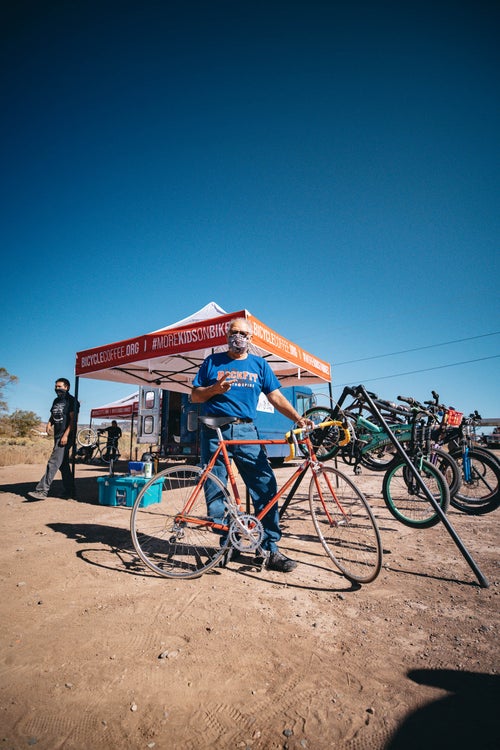
Tony, a Fort Defiance local, after the Silver Stallion crew fixed his old bike.
Although Silver Stallion is geared toward youth and young adults, Price says cyclists of all ages showed up for the events. “It was really cool to see old bikes come back to life,” Price says. “One guy brought a bike from the ’70s or ’80s to one of our events. He was so stoked to see it up and running.” In total, the team fixed more than 400 bikes last fall.

Left: Manny Chavarria, a mechanic and rider who coaches a Hopi youth team, looks through small parts in the Mobile Ride Center. Right: Tim Morris of Silver Stallion runs cable on a repair in Kayenta, Arizona.
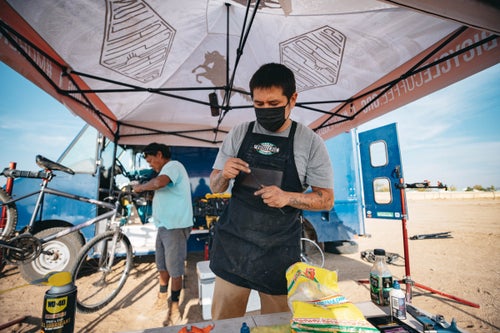
Mechanic Lorenzo Manuelito prepares a shifter cable for a repair.
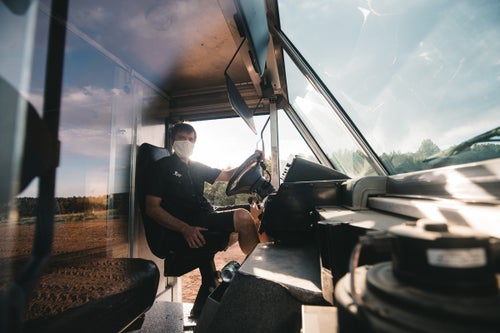
Scott Nydam at the wheel of the truck. Nydam, a former professional cyclist, originally started Silver Stallion as a coffee shop in Gallup, New Mexico. Now, the coffeehouse doubles as a bike shop and offers bike programming for youth in the Navajo Nation. They’re currently working on offering expanded programming through the Mobile Ride Center, Nydam says, and plan to start visiting schools after the pandemic. Eventually, the Silver Stallion team hopes they’ll be able to open a permanent brick-and-mortar bike shop on the reservation.
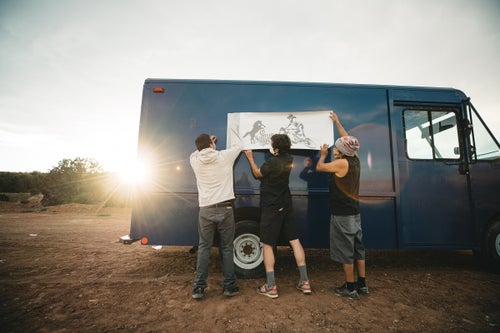
The Mobile Ride Center is now complete except for a paint job and a few other cosmetic details, although Price and Nydam are also thinking about adding coffee makers or pizza ovens to the truck. The truck has paused operations for the winter, since most kids aren’t riding in the cold weather, but Nydam says they’re currently seeking funding to start traveling again this spring.